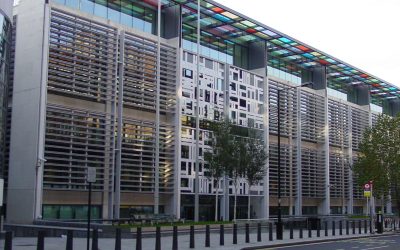An opportunity has arisen to be ministers’ growth agenda partners
The economic direction of travel under Liz Truss will differ from that under her predecessors
Jonathan Werran, Chief Executive, Localis
The poignant images of the late Queen Elizabeth II, clearly frail but resolutely dutiful, shaking hands after inviting Elizabeth Truss to become her last prime minister will live long on the national memory.
It was remarked that more than a century spanned the birthdate of Ms Truss, born in 1975, and the Queen’s first prime minister Winston Churchill, born 1874. What most unites these first and last is a shared mindset on taxation. Churchill once noted that “for a nation to try to tax itself into prosperity is like a man standing in a bucket and trying to lift himself up by the handle”.
But this is a new beginning in every sense. And with more than two years to go before the next general election can be held, in January 2025, what might we expect from King Charles III’s first government?
The direction of travel will, in economic terms, be different to Ms Truss’s predecessors. The amount of road left to travel in is, however, crushingly short, and the width of highway will be narrowed still further by the impact of inflation, an unstable pound and the multi-billion pound energy programme to manage the immediate impact of the cost-of-living crisis.
A new economic game is afoot, as evinced by the head-on challenge to Treasury orthodoxy, signalled by the defenestration of Whitehall aristocracy Sir Tom Scholar as Exchequer permanent secretary, and embodied in the shape of free-thinking historian and investment banker Kwasi Kwarteng. This will presage a determination for the Treasury to focus on growing the economy rather than indulge in what Ms Truss, herself chief secretary to the Treasury in the May government, termed “abacus economics” and what former Treasury minister Lord Agnew dismissed as an obsession with “an accounting penny-wise, pound-foolish mentality…which stifles growth”.
More than anything, this presents local government with the opportunity to offer itself to serve as a partner to the new government growth agenda. In practical terms, this could be an enhanced convening role in managing economic and social anchors, in aligning with supply side and deregulatory moves to promote enterprise zones, with tax breaks, gigabit broadband and other business inducements, freeports and the like.
On the basis that the Levelling Up and Regeneration Bill will survive the Truss government’s foreshortened legislative programme, where does this leave housing and planning reform? It will be a great effort to convert a largely aspirational planning-focused document into a planning bill fit for implementing the new government’s growth ambitions, and a 12th housing minister in as many years to steer it.
What might this portend for the future of town centres and high streets in the run up to a make-or-break Christmas season? Councils will have to be at the heart of local recovery efforts, alongside allies from business, Business Improvement Districts, Chambers of Commerce and the Federation of Small Businesses, and combined authorities and local enterprise partnerships for on-the-ground assistance.
As minister seeking to push through the forerunner English Devolution and Economic Regeneration Bill in the summer and autumn of 2020, Simon Clarke was certainly seen as being determined in his approach. Now Secretary of State, it would be thought that he would be minded to continue and complete the recent line of devolution deals which Greg Clark achieved during his stint as caretaker.
But the open road lies ahead for Mr Clarke to fulfil his own, unique, levelling up mission for the government. But whether that allows our localities and functional economic areas to grow their own way, is another matter entirely.






